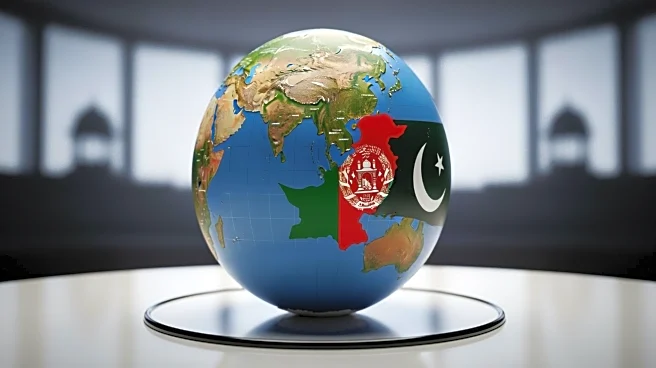What's Happening?
Afghan and Pakistani delegations have arrived in Doha, Qatar, to engage in crisis talks following a week of intense fighting that resulted in numerous casualties on both sides. The discussions are led
by the defense ministers of both countries, focusing on measures to end cross-border terrorism and restore peace along the border. The conflict escalated after Pakistan accused Afghanistan of harboring militants responsible for attacks in border areas, a claim denied by Afghanistan's Taliban government. The situation has drawn attention from regional powers, including Saudi Arabia and Qatar, who have called for calm.
Why It's Important?
The crisis between Afghanistan and Pakistan is significant due to its potential impact on regional stability. The ongoing conflict threatens to destabilize an area already vulnerable to the resurgence of groups like the Islamic State and al-Qaida. The talks in Doha represent a critical opportunity for both nations to address border tensions and militant activities, which could lead to broader implications for security in South Asia. The outcome of these discussions may influence future diplomatic relations and security policies in the region.
What's Next?
The immediate focus is on achieving a resolution through dialogue in Doha, with both countries seeking to implement measures to prevent further violence. The international community, particularly regional powers, will likely continue to monitor the situation closely, potentially offering mediation or support to ensure a peaceful outcome. The success or failure of these talks could shape future interactions between Afghanistan and Pakistan, impacting regional security dynamics.
Beyond the Headlines
The crisis highlights the complex geopolitical landscape in South Asia, where historical disputes and border issues continue to fuel tensions. The involvement of regional powers in calling for calm underscores the broader implications of the conflict, which could affect international relations and security strategies. The situation also raises questions about the role of external actors in mediating conflicts and promoting stability in volatile regions.









